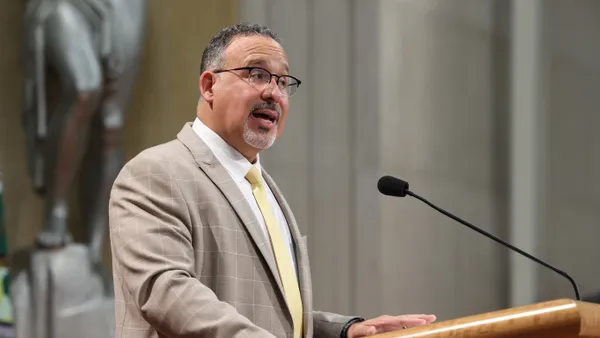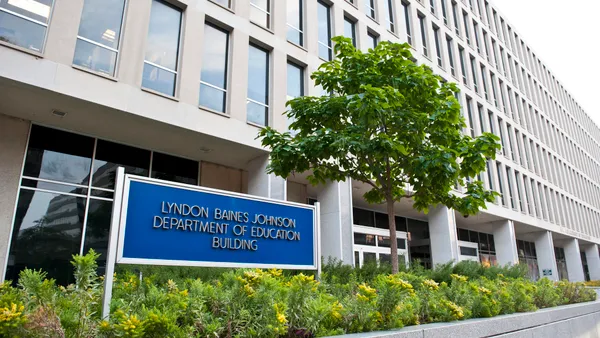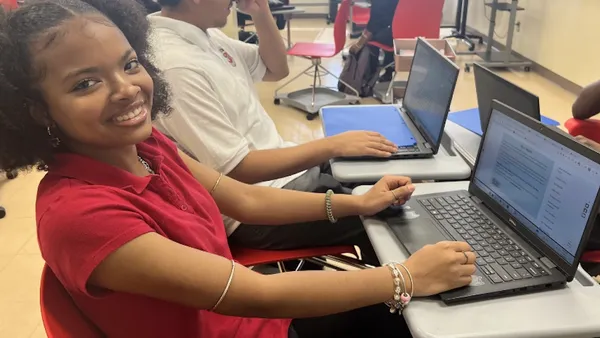Dive Brief:
- A team of architecture and engineering undergraduate students at Penn State University won a $30,000 award to develop an application that uses artificial intelligence (AI) to help students determine the shortest path to graduation, Campus Technology reported.
- The students were part of a university-wide competition earlier this year to expand uses for AI. The winning app, dubbed LionPlanner, used machine learning, natural language processing and algorithms to come up with a track of courses aligned with students' career interests. The app shares results with academic advisers who help students strategically meet graduation requirements.
- LionPlanner was chosen as the winner because of its immediate impact on the student experience and the potential to make academic advising more efficient.
Dive Insight:
Colleges and universities across the country are on the lookout for innovative ways to ensure students are on the path to graduation in order to reduce their cost of attendance and free up seats for incoming students. The University of South Florida, for example, raised its six-year graduation rate among first-time students by 17 percentage points from 2011 to 2015 — the largest rate of improvement for any public college in the country, according to the Chronicle of Higher Education.
USF used several tactics to improve the graduation rate. For example, prospective students who fell short of academic standards of admission were referred to area public community colleges and offered help transferring once their grades improved, according to the Chronicle. The university also increased resources for mental health services, and it arranged class times and schedules to allow for more one-on-one interactions between students and instructors.
Meanwhile, the California State University System recently announced it was replacing non-credit remedial classes with credit-bearing courses that span two semesters with support classes offered in tandem. The move is part of an initiative to increase the six-year graduation rate to 70% by 2025 across the system's 23 campuses. So far, it has allowed the university system to add 4,300 classes and opened up 90,000 seats.
The California Community Colleges System announced in August that it will implement the Accelerated Study in Associate Programs (ASAP) model developed by the City University of New York after a $2.6 billion increase in state funding since 2011 failed to deliver the boost to graduation rates they needed, EdSource reported.
California is now investing $3 million in the program to increase the number of students who complete degrees within three years. California officials are hoping to learn from the program's success in New York. As of summer 2018, 53% of students in the ASAP program graduated within that timeframe, according to CUNY.
A report from the Brookings Institution released earlier this month offers several tactics for improving graduation rates for community college students, which can also be useful at four-year institutions. Those include orienting academic pathways around career goals and using technology to provide targeted support, such as texting students over the summer to reduce melt rates.













